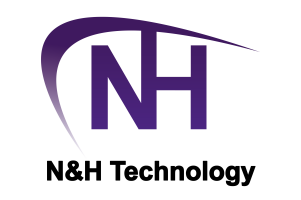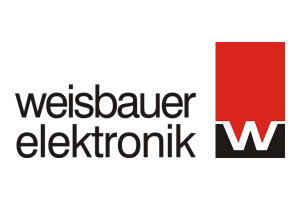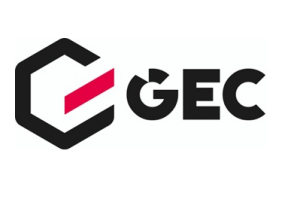Open source software
Europe has to catch up
Open Source is not only becoming more and more important, it is also helping to drive innovation. Hence, the Eclipse Foundation wants to promote the advantages of Open Source projects. However, strong partners are needed.
In July last year, Mike Milinkovich, executive director of the Eclipse Foundation, told me in an interview [1]: »Open source is a driver of innovation worldwide.« This sentence de-scribes the importance of open source software to tech companies very well. There are several reasons for that:
- Open source makes many products and services available to developers and companies, mostly free of charge. Furthermore, such products and services are successively improved by the community.
- Companies can act more effectively and bring products to the market more quickly.
- Open source reduces the technical risks and lowers the costs of developing software.
- Companies are no longer dependent on a specific technology.
Open source software is an important element for the development of the digital transformation in companies, governments, and research institutions. Everyone who participates in the open source ecosystem can collaborate with others more easily, learning from each other and sharing experience and expertise. In this way, all participants in the ecosystem benefit. This is the goal that the Eclipse Foundation wants to achieve with its commitment in Europe. Since January of this year, the Foundation has been officially European, before that, it was based in Ottawa, Canada. By joining Eclipse, companies can increase their visibility in the market and forge new relationships, regardless of size and focus [2].
Sharing for mutual success
Essential to the success of member companies is that code is co-authored by leading developers in the knowledge that a broader spectrum of companies will be able to benefit from their work. Gaël Blondelle, vice president of European Ecosystem Development at Eclipse Foundation, underscores this point: »Some companies believe they should keep their ideas secret. But in the digital economy, sharing ideas and collaborating with others can actually help build a competitive advantage. And open source collaboration with its diverse community and a strong governance model, is a sure way to achieve cost-effective, fast, and scalable innovation.« This gives all members of the ecosystem access to key development skills and knowledge that would otherwise be difficult or costly to access. By bundling resources, each member can achieve cost savings, a reduction in manpower, lower development costs and reduced business risk, Blondelle said.
Likewise, from a competitive perspective, the open source ecosystem offers new opportunities to its members. They can share and collaboratively develop ideas, projects, and innovations. This provides competitive advantages, and enhances the reputation of European organizations, countries, indeed the European Union as a whole. What’s more this is sorely needed, considering the overall value of European companies. In February 2020, for example, the 100 largest platform companies in the world were estimated by digital economist Dr. Holger Schmidt, to be worth a total of 8.9 trillion US-Dollars. European companies were only responsible for about three percent of this total value [2].
Implementing projects successfully
Platforms like GitHub are convenient tools for sharing code and bringing developers together. However, collaborating on code is only one part of what makes successful open source software. It is just as important to have a secure legal framework in place. Once a member company begins marketing products developed with open source, managing intellectual property is essential to comply with legal requirements. To this end membership in the Eclipse Foundation provides a legal framework as well as other important services.
All aspects of the Foundation focus on projects that are proven to be able to deliver high quality, scalable and sustainable open technologies. With the help of Eclipse, companies should be able to develop commercial products, increase sales and thus increase market acceptance. To ensure the success of projects, the Foundation offers a range of services:
- Processes and best practices for developing open source software.
- Services for managing intellectual property.
- Licensing of code under the Eclipse Public License as well as Apache 2.0, BSD, and MIT.
- Mentorship, guidance, and expertise in creating and managing open source projects.
- Marketing support to increase project visibility.
An example of a successful Eclipse project is the Simulation of Urban Mobility (SUMO) project carried out by the German Aerospace Center (DLR). With this project, DLR is aiming to make its traffic simulation software open source by using state-of-the-art research and algorithms. With the help of the community, new partners and companies are to be recruited. The team’s open source software is already used around the world helping organizations and municipalities better understand vehicle traffic patterns, parking implications, the effects of traffic streamlining initiatives on traffic flow, and other traffic-related issues [2].
Literature
[1] Schlichtmeier, T.: “Die moderne Welt basiert auf offenem Quellcode”. elektronik.de, 08.07.2020, www.elektroniknet.de/embedded/software/die-moderne-welt-basiert-auf-offenem-quellcode.177892.html.
[2] Enabling Digital Transformation in Europe Through Global Open Source Collaboration. Eclipse Foundation, Whitepaper, 2020, www.eclipse.org/europe/documents/eu-opensource-whitepaper-jan2021.pdf.

embedded world Conference 2021 DIGITAL
Session Keynote: Software & Systems Engineering
The application of open source technologies to embedded systems
Mike Milinkovich, Eclipse Foundation
As the Internet of Things (IoT) continues its proliferation throughout multiple industries, one thing that end customers and IoT developers have made abundantly clear is that they expect IoT and embedded technologies to be open source. This was confirmed in the latest Eclipse IoT Commercial Adoption survey published in March 2020, which found that 60 percent of respondents are factoring open source into their deployment plans. While businesses appreciate the cost savings of the model, what they most value about it is the control and flexibility it gives them. This presentation will examine the applica-tion of open source technologies to embedded systems across a host of industries, from smart manufacturing to automotive and on to smart cities.
Session 6.3: Software & Systems Engineering: Development Process
Monday, 1 March, 16:15–16:45
Conference program on the embedded World Conference 2021 DIGITAL homepage.





